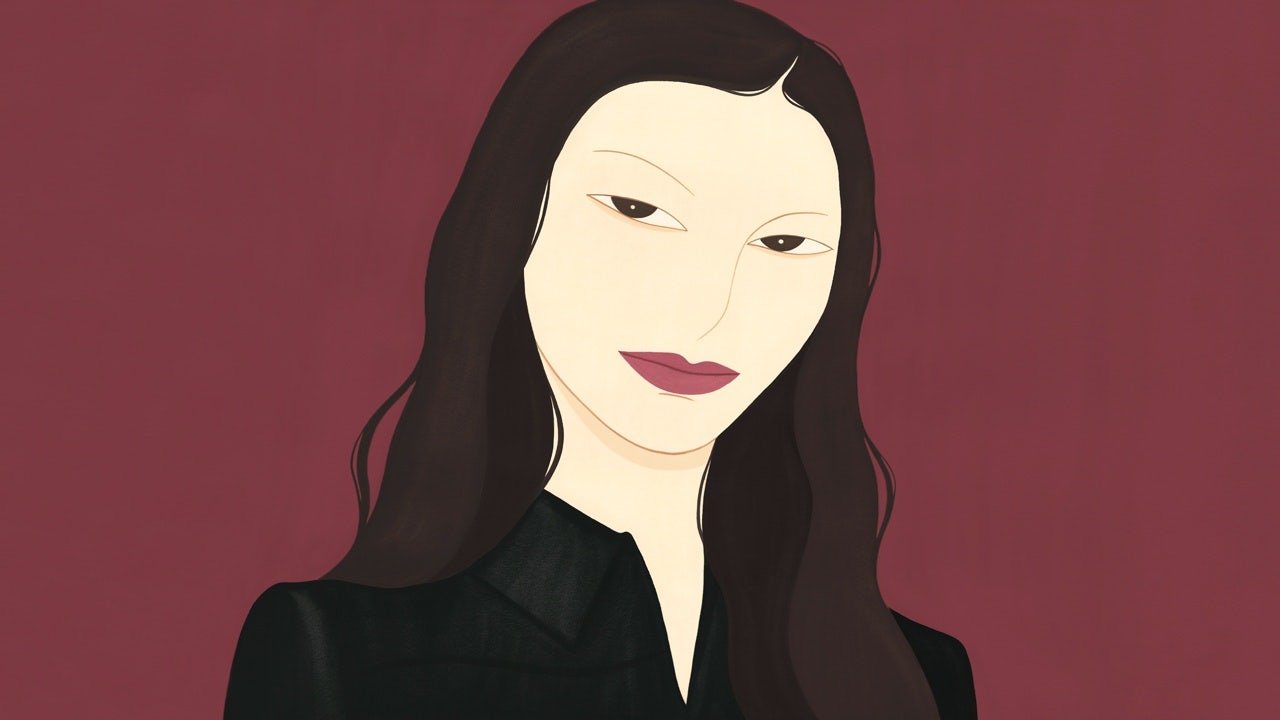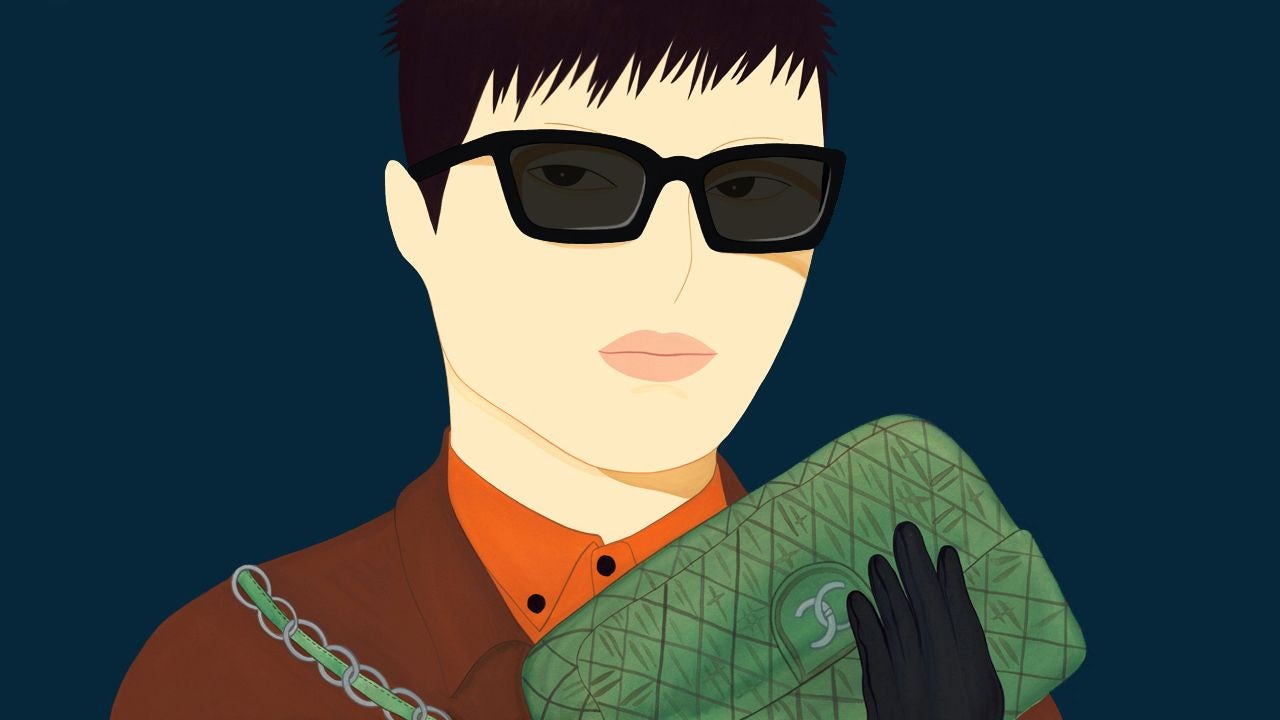As the founder of MIASUKI, a brand pioneering the niche market of luxury equestrian sportswear, Mia S. Lei is passionate about scaling her brand in China. Speaking on the phone from Austria, it is also clear that the generous, straight-talking entrepreneur from Mainland China is equally impassioned about empowering Asian female voices. And the determined businesswoman has certainly had her share of challenges.
Lei was born in Guangzhou to a military family during the 1980s. Her self-made grandfather was a notable figure, casting a long shadow over the family by pledging himself to a new vision of China; his writings are now used as a modern literature companion in Guangdong Province schools. When Lei left China to study in Europe, she witnessed major generational shifts which alongside grandfather's influence went on to shape her current outlook.
“It was very different, of course, but we still understood the restrictions [placed] on generations before us,” she said. “My peers and I believe in change. Many things might not change, but I believe in it because growth has to happen.”
In more recent years, this progress can be seen in the rapid development of China’s tourism, recreation, and sports sectors, which have provided opportunities for China’s equine industries. Lei, who took up horseback riding to combat an early fear of animals, attempted early on to capitalize on this burgeoning market. As equestrian events and activities steadily upturn in China, she has, though MIASUKI, anticipated the demand for fashionable luxury equestrian performance wear.
The 2020 Equestrian Apparel Market Report states that the global equestrian apparel market is currently valued at 2551.3 million this year. And though growth over the next six years will be slow, China’s growing purchasing power and future market potential should make the country a priority for producers seeking aspirational consumers. In 2019, China’s equestrian HNWI population equalled 1,195,100 riders, an increase of 9.8 per cent over 2018.
While tapping this primary market is vital as it also comes with built-in consumer loyalty, Lei's garments can transition easily from sportswear to elegant casual wear. Jing Daily spoke to the founder about helming a niche brand, her China vision, and the importance of embedding sustainability into a brand's trajectory.
How, and where have you spent these last couple of months?#
I’m currently in Austria, where I live. My husband is Austrian, and we’ve been here since Chinese New Year. I am blessed that [Austria] has handled COVID-19 well. We have two young children, and they love it here, but we haven’t been back to our home in Hong Kong for a while, and we miss all my family.
But at the same time, I enjoy working from home in Austria because it is different. We are in Graz, where my husband is from, and while he’s been an ex-pat in Asia, we need our children to know both their parents' roots and understand the culture, so we travel between when we can.
What’s your background, and what drew you to fashion initially?#
My father is a businessman in real estate. I‘m the eldest of three girls, so I was under great family pressure. Fashion is a tough business, and it’s not the preferred choice for families in China. But I really enjoyed my freedom and getting to know myself in a safe environment [in boarding school in the UK]. Perhaps I wouldn’t have had the freedom in Kong Hong to choose my career, so I always appreciated being sent away.
I studied business management at King’s College, and from there, I started a Master’s in Fashion Entrepreneurship and Innovation at the London College of Fashion. When [my parents] saw I wanted to do the course, they weren’t happy. But I felt it was something I wanted to do. But I never finished it because of an eating disorder, and I’m proud to speak about that as I want to bring awareness to these things. Psychological health isn't a subject that’s brought up in Asia like it is in the West, so it’s important.
Speaking of which, what are some of the difficulties you face as a female entrepreneur in China?#
Female empowerment has been topical for a long time, but Asian women tend not to speak up because, in Asian culture, certain things are dealt with in private. It’s not that we don’t want to speak up about things like racism, but we deal with it with silence. For us to speak up about some issues would be culturally and behaviorally different. That’s why I think it takes even more courage for us to be outspoken. But, I think it’s time for women, particularly ethnic women, to put a stop to certain things.
From a business perspective, trademarks are very different in mainland China, and though the country is advanced in so many ways, some profiteers are very powerful and know the loopholes. I’m a worldwide trademark, and I’ve had issues with mainland China trademark agencies when it comes to classing and filing motions in court — it’s a long process. I do not believe in spending cheaply for legal, and my IP and trademarks have all been handled in Milan by trademark specialists.
Could you tell Jing Daily about your brand and your perspective on the fashion industry?#
My vision for the brand from the beginning was to have the most technically amazing and comfortable equestrian brand for women. I like to say I offer an intelligent product as there is so much thought behind it; I am not pushing a product out there that the world doesn't need. It’s about comfort and confidence, and holding/molding you in a certain way — it should add value to your posture. It’s got to be a performance product but crafted beautifully. And it can look sporty, but it’s not athleisure — it’s more than that. It’s not a casual product.
Fashion is something that fascinates me. I believe in quality and having strong values, meaning that we buy certain things so we can pass them on — along with the stories that come with them. I need to push my creativity and my ability to produce something this high-quality, and that’s very important for me, particularly as a mainland Chinese woman. Chinese fashion is an area people should watch out for, and I believe many mainland luxury brands will start to emerge soon.
Could you walk us through your current brand strategy and China vision?#
I’m a destination brand. Since I’m so niche, I rely on organic traffic and word of mouth. I need to position my brand in Europe correctly before bringing it to China, which I know will be a big market in time. In the UK, Harrods picked up the brand in 2016 and has been an amazing support. At my brand positioning level, its the best fit. One of my ambassadors is the Queen's second cousin, and I have a strong relationship with royalty.
We started selling in China offline last year at equestrian tack shops at prestigious equestrian clubs, but I’m still formulating my online business. Tmall is very expensive to start with, and it’s a bit premature to do a lot of online marketing for an equestrian brand in China, as the sport isn't at the same level of engagement [as Europe] at the moment.
Consumers [in China] want to spend on luxury, but when it’s a sporting product, they ask themselves, ‘do I want to spend that much?’ I was told when I launched that I was too advanced, and [riding] was a luxury sport. But, some products like my riding helmets have been selling a lot in China. I work with Kep Italia because, structurally, they are better for Chinese head shapes.
Can you tell us about your daily operation and how you source your products?#
In terms of operations, I have a team, and I work closely with them to choose our fabrics and figure out how to construct products. I only buy from certain, very technical, specialized, high-end Italian manufacturers, and I always look at their sustainability policies before I purchase.
Unfortunately, we still do new production, but I would love to work with other companies like Redress [a Hong Kong-based environmental NGO] to look at minimizing fashion waste. But I make a product that lasts, which is already a step forward. By making better products, [consumers] will wear them more often, and I always look at it from a consumer point of view, or as a mother. I need things to be practical things that perform, like unfailing tailoring but I need things to translate and travel well, too.
Having mentioned the environmental balance, has this outbreak impacted your future business plans?#
Well, all businesses want to sell new things, but it’s hurting the environment. I want my children to have nature and all the things I have enjoyed, so we need to be doing more [for the environment]. I’m a second-hand consumer, and I embrace the circular economy. In leather, for example, I will be incorporating the circular economy into my online business. I want to adopt this with a new phase, such as reselling pre-owned Mia Suki garments. In the future, I’ll also look to invest in other fashion tech and sustainability companies myself.
Some major luxury brands are pushing out sustainable accessories collections. But I don't know how real this is if you are making a new fabric that doesn’t degrade quickly or that you can’t recycle. So if you ask me, fashion is moving in the right direction, but it’s not moving fast enough. That’s a sad fact.

